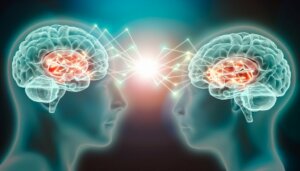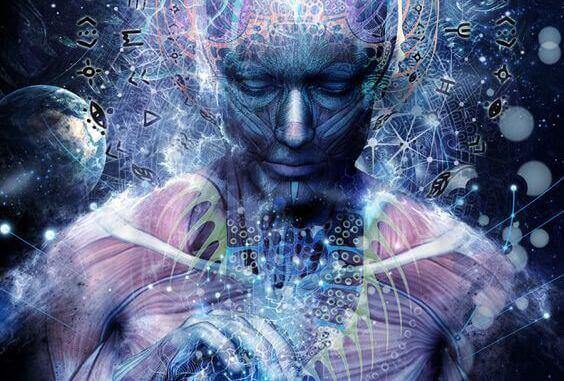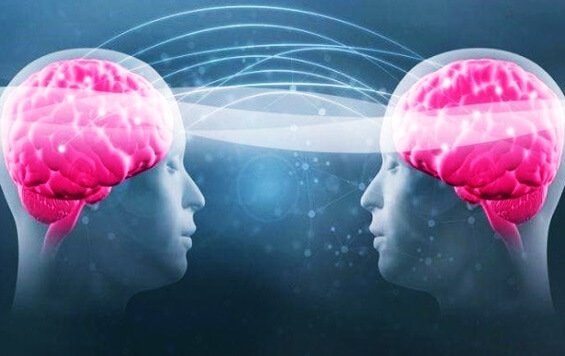Parapsychology: Investigating the Psychic and Paranormal

Under the label of parapsychological phenomena, also known as psi phenomena, a series of events are grouped that can’t be explained by natural law. This label also refers to the knowledge a person acquires using sensory skills different from the usual ones. The discipline that deals with investigating such phenomena is known as parapsychology.
The scientific interest in this particular topic is quite recent. Nevertheless, beliefs in the reality of such phenomena have been around for a long time. However, before the appearance and development of current scientific thought, the causality of all physical phenomena wasn’t well understood. For this reason, magical explanations were resorted to. For example, ghosts, sorcerers, demons, mythological beings, etc.

Parapsychology
Parapsychology is the study of extrasensory perception (telepathy, clairvoyance, precognition, and hunch), mind-matter interaction, and phenomena suggestive of survival after bodily death. In addition, it includes near-death experiences, apparitions, and reincarnation. (Bonilla, 2010). Let’s take a look at the definitions of some of the topics studied:
- Telepathy. Brain-to-brain communication.
- Clairvoyance. Perceiving visual realities that not everyone can see.
- Remote viewing. Seeking impressions about a distant or unseen object, purportedly with the mind.
- Precognition. Seeing or becoming directly aware of events in the future.
- Macropsychokinesis. Having an influence on physical systems on a large scale without any physical interaction.
- Biopsychokinesis. Having an influence on living organisms without any physical interaction.
- Retrocognition. Knowing about a past event that couldn’t have been learned or obtained by normal means.
Research in this field gained attention in the second half of the 19th century and the beginning of the 20th. This was due to the popularity of spiritualism. At the same time, various investigations into strange phenomena began. These studies generated two hypotheses:
- Apparitions, communications with the dead, near-death experiences, precognition, strange noises and movements have hidden meanings. These phenomena are known as ‘necessity determined events’. (Ehrenwald, 1978).
- Clairvoyance, telepathy, and card divination can be produced in a laboratory, and the sum of the correct answers would be expected to be statistically significant. These phenomena are known as ‘error-determined events’ (Ehrenwald, 1978).
Psychic phenomena and explanatory hypotheses
What’s known about the psychic phenomena studied by parapsychology can be summarized as follows (LeShan, 2009).
- Some people demonstrate that they possess information that they’d find difficult to acquire through sensory channels. For instance, telepathic, clairvoyant, or precognitive phenomena.
- The space or other physical factors between the original information and the person who proves to possess it aren’t determining factors.
- Emotional factors establish the union between the origin of the information and the individual who demonstrates having that knowledge.
- Many people experience significant pressure when they hear or read opinion pieces about paranormal phenomena or discover information about psychic phenomena.
Three hypotheses have been postulated to explain these phenomena. The first alludes to the existence of a higher extrasensory faculty, in cases of telepathy or clairvoyance. The second claims that the existence of non-material beings can explain the existence of such phenomena. In other words, it postulates that aspects related to the personality don’t cease to exist at the moment of bodily death. Finally, the third hypothesis combines the previous two.
Some parapsychological events can be explained by valid scientific answers. For example, the visual phenomena or revelations could be due to hallucinations. In fact, many of these phenomena can be explained by visual disturbances. Additionally, it’s known that the mechanical stimulations that produce the sending of electrical signals to the brain are what cause visual flashes. These are characteristic of certain parapsychological phenomena (Haddrill, n.d.).

Criticism of parapsychology
Parapsychology isn’t supported by the theoretical models accepted by either the natural sciences or psychology. After all, just because this pseudoscience uses the scientific method doesn’t make it scientific. Furthermore, the mere use of experimental methodologies isn’t enough to grant it such status.
If a discipline is to be conceived as scientific, it needs to produce a theory able to be tested by the scientific method. In turn, this theory must be able to relate to the body of accepted scientific knowledge. In other words, it must be able to connect with the rest of the knowledge. However, to date, parapsychology hasn’t produced any such theory. Therefore, its status is that of a pseudoscientific discipline.
Finally, parapsychology has failed to demonstrate the existence of any paranormal phenomenon under controlled laboratory conditions. As a matter of fact, in many cases, their apparent experimental successes have been provided by the methodological flaws in their investigation methods rather than by the explanations offered by the parapsychologists themselves.
All cited sources were thoroughly reviewed by our team to ensure their quality, reliability, currency, and validity. The bibliography of this article was considered reliable and of academic or scientific accuracy.
- Bonilla, E. (2010). Conexión mente-cuerpo, fenómenos parapsicológicos y curación espiritual: Revisión. Investigación Clínica, 51(2), 209-238.
- Ehrenwald, J. (1978). The ESP experience: A psychiatric validation. Basic Books.
- Haddrill, M. (s.f). Eye floaters: Causes and treatment. All about visión. https://www.allaboutvision.com/conditions/spotsfloats.htm
- LeShan, L. (2009). A new science of the paranormal: The promise of psychical research. Quest Books.
-
Savio, C. F. (1912). A proposito di telepatia. Rivista Di Filosofia Neo-Scolastica, 4(1), 91–98. http://www.jstor.org/stable/43064955.
This text is provided for informational purposes only and does not replace consultation with a professional. If in doubt, consult your specialist.








